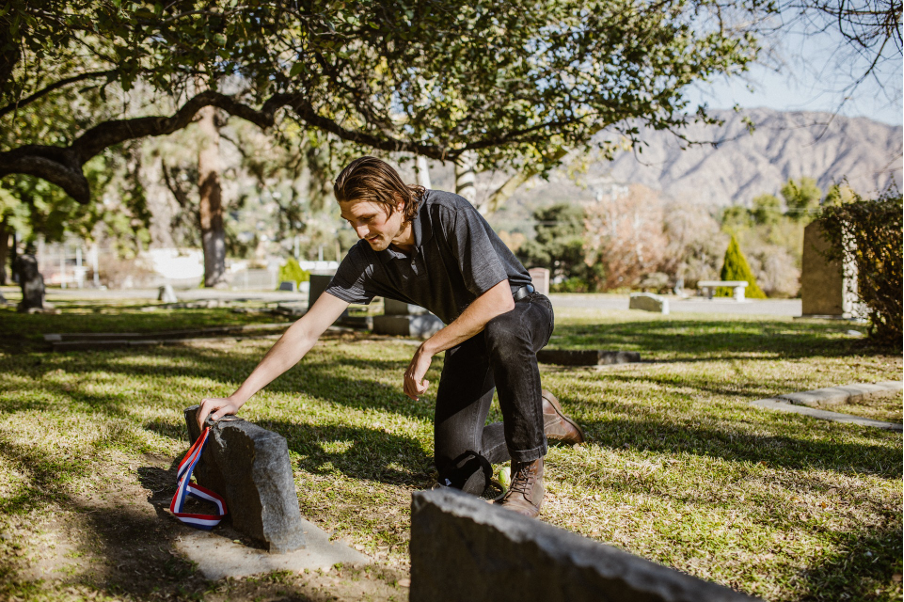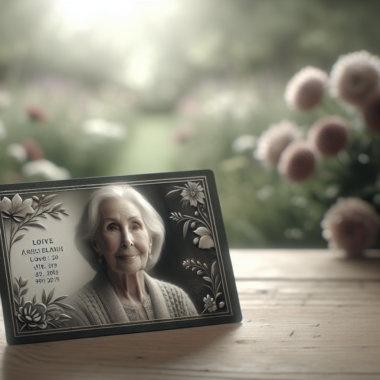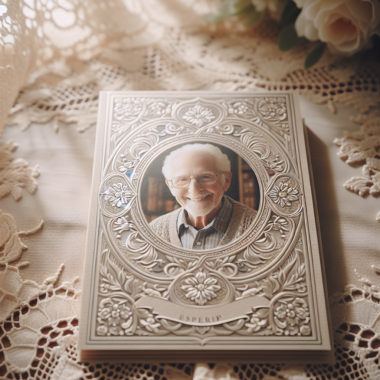No one truly prepares themselves to deal with the eventual demise of a loved one. And when it suddenly happens, emotions run wild, and the moment is often overwhelming. However, at the moment of the person’s death, there are specific actions expected of you or any family member.
Because most deaths are sudden, they can happen anywhere and anytime. We look at some of the actions to take when if it happens in any of these locations.
Home/Care Home
If the death was unexpected, you should call an ambulance and clearly state your location for a prompt response. In some cases, the operator may advise you to see if you can resuscitate the person. Most times, you’d have to wait for the paramedics to arrive and confirm the death status by themselves. It is essential to leave the area untampered for forensics to examine and develop a comprehensive autopsy.
The police might arrange for the body to be moved by a funeral director to a funeral home.
Suppose the death was expected due to prolonged terminal illness. In that case, you can call the family doctor who will examine and issue documents you can tender to the necessary authorities to register the death.
The doctor may also contact a coroner to conduct a post mortem examination to determine the cause of death if the death is unnatural.
Overseas
If the deceased died in a foreign country, you’d need to make arrangements to obtain a death certificate from that country. You can also make plans to return the decedent back into the country by contacting a professional funeral director who will advise you on the steps to take.
You may need to obtain documents from:
- The Embassy located in the country of death
- Professional hospital in the country of death to get the death certificate
Ensure that the cost of repatriation of the body has been finalized and if it’s part of the insurance policy before moving along with funeral arrangements.
Public Space
If your loved one suddenly dies at a public place (that is, a hotel, club, street, bus, etc.), you need to contact the emergency services. The police may arrange for a funeral director to move the body to a funeral home after a post mortem examination has been done.
However, if the death was unnatural, the police may arrange to move the body to a mortuary instead.
Hospital
If the deceased died at a hospital, the management will contact you if you’re the next of kin. Now, if the dead had initially registered for an organ donation, the transplant director will discuss with you before commencing the removal.
The hospital will also issue a death certificate and any other relevant document. You may be asked to inform a funeral director who will arrange for the body to be transferred to a funeral home.
In conclusion, you should inform the extended family and kickoff funeral arrangements once death has been confirmed. And if you need to design and print a funeral program, DisciplePress is the one to call.
We pride ourselves in delivering posters, slide shows, memorial cards, prayer cards, memorial fans, keepsakes, and much more. Our turnaround time is exceptional, ensuring you get these items when you need them.
Contact us today to get unbeatable deals on these items.
 Free Shipping Over $50
Free Shipping Over $50  888-432-8363
888-432-8363


 Obituary/Programs
Obituary/Programs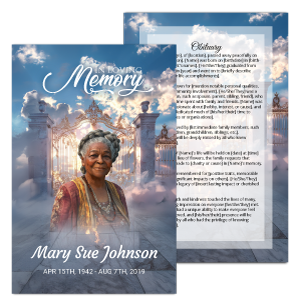 No-Fold Memorial Programs
No-Fold Memorial Programs 4 Page Funeral Programs
4 Page Funeral Programs 8 Page Memorial Programs
8 Page Memorial Programs 12 Page Funeral Programs
12 Page Funeral Programs 16 Page Funeral Programs
16 Page Funeral Programs 20 Page Funeral Programs
20 Page Funeral Programs Tri-Fold Funeral Programs
Tri-Fold Funeral Programs Complete Memorial Packages
Complete Memorial Packages
 Cards & Bookmarks
Cards & Bookmarks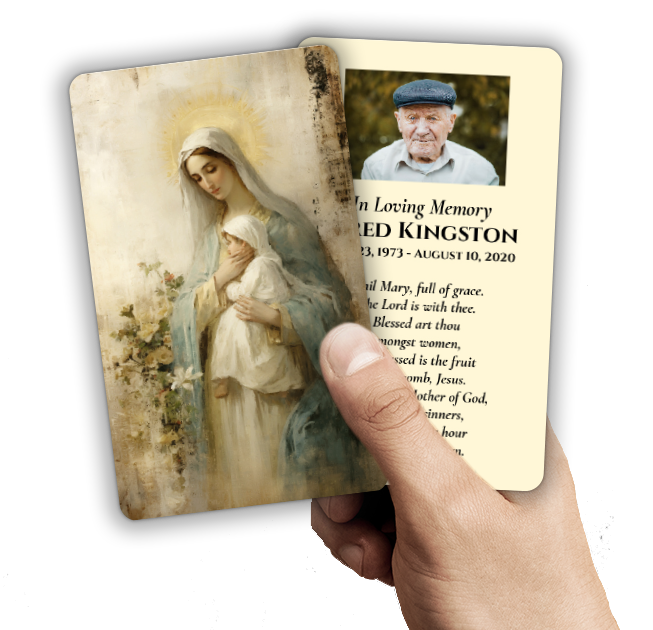 Saint Prayer Cards
Saint Prayer Cards Folded Memorial Cards
Folded Memorial Cards Folded Holy Cards
Folded Holy Cards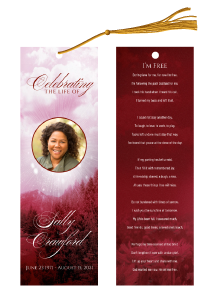 Memorial Bookmarks
Memorial Bookmarks Thank You Cards
Thank You Cards Share-A-Memory Cards
Share-A-Memory Cards Memorial Magnets
Memorial Magnets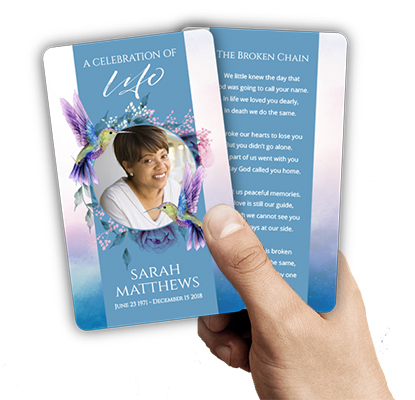
 Memorial Posters
Memorial Posters Guest Books
Guest Books Slide Shows
Slide Shows Memorial Fans
Memorial Fans Death Announcements
Death Announcements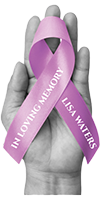 Take Away Keepsakes
Take Away Keepsakes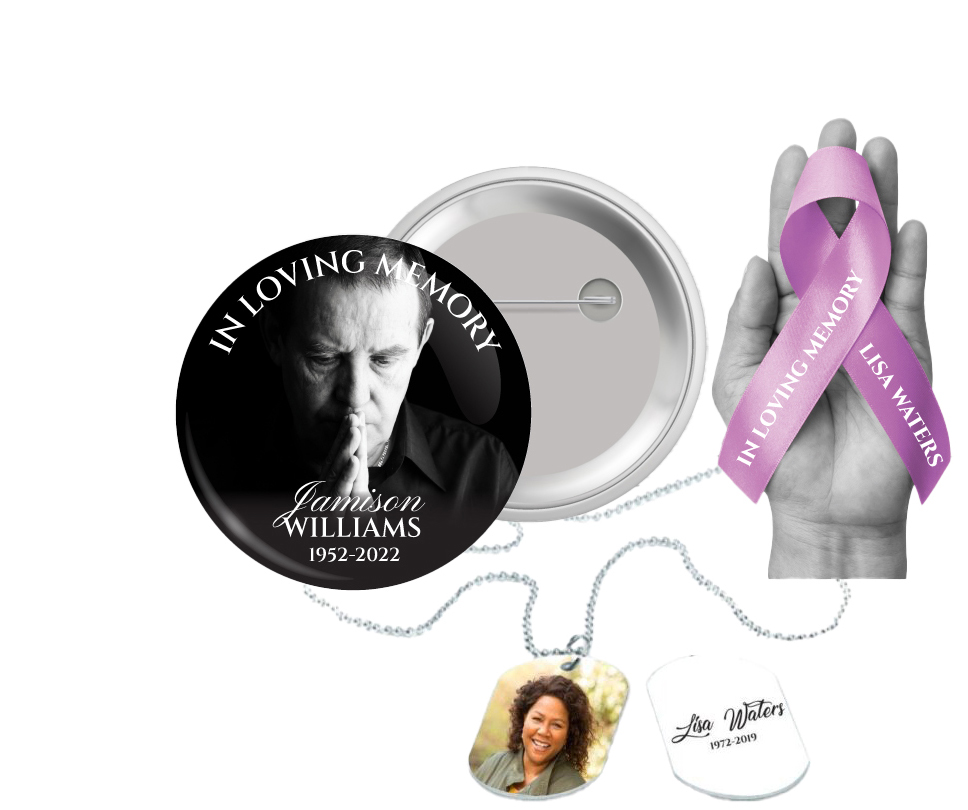
 Church Products
Church Products